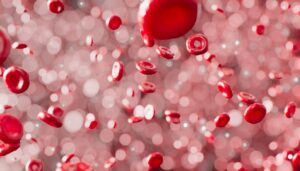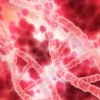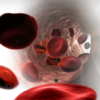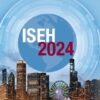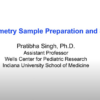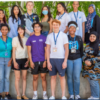New and Past P&F Recipients
Watch for these rising Stars
Emily Collins, Ph.D.
Emily Collins, PhD, is a Postdoctoral Researcher in the lab of Anthony Rongvaux at Fred Hutchinson Cancer Center. With the support of CCEH, her research is focused on developing a CRISPR-based functional in vivo Screen of Human Hematopoiesis (C-FiSHH). This project proposes to combine CRISPR screen technology with the Rongvaux lab’s expertise in humanized mouse models to create a new tool to probe the essential mechanisms that maintain hematopoiesis and give rise to varied immune cell lineages. C-FiSHH will provide a necessary complement to the high-dimensional mapping of human hematopoiesis transcriptomes, adding a functional perspective to descriptive studies. The first goal is to deliver a protein-barcoded gRNA/CAS9 complex to human donor hematopoietic stem cells that will then successfully engraft in the MISTRG mouse model. We will then demonstrate the feasability of a multi-gene screen approach by delivering a CRISPR library of well-described genes involved in the development of the major hematopoietic lineages. Once developed, this approach intends to be highly versatile to accommodate any genes of interest and will help elucidate mechanisms underlying fundamental characteristics of hematopoiesis, such as the long-term maintenance of self-renewing HSCs, lineage commitment, or the role of cytokines.
Radoslaw Omelianczyk, Ph.D.
Radoslaw received his doctorate from the Nanyang Technological University in Singapore where he worked in the lab of Dr. Peter Preiser. He studied virulence genes of the human malaria parasite Plasmodium falciparum. He is receiving his postdoctoral training in the labs of Dr. Ellen Leffler and Dr. Paul Sigala (Utah CCEH) at the University of Utah. He is studying recently identified adaptations of Plasmodium falciparum that allow the parasite to thrive in otherwise resistant sickle disease patients. The Sickle allele provides near complete immunity to severe malaria, which caused allele frequencies to reach almost 20% in Sub-Saharan Africa. The spread of adapted parasites would therefore put large parts of the population at increased risk to get malaria. The U24 CCEH type B P&F grant is used to study the biological roles of these adaptations. Specifically, he hypothesizes that mutant parasites interfere with red blood cell metabolome and lipid composition.
James Ropa, Ph.D.
James is currently a postdoctoral fellow at Indiana University School of Medicine where he has worked under the mentorship of first Dr. Hal Broxmeyer and now Dr. Mark Kaplan. He is in the process of transitioning to an independent position. James’s research is broadly focused on identifying the molecular machinery important for hematopoietic cell potency in various homeostatic/diseased/stressed states, with the overall goal of improving hematopoietic cell therapies. This CCEH supported study will identify gene programs that correlate with and/or drive hematopoietic stem and progenitor cell function by modeling the hematopoietic transcriptome against clinical readouts of potency and predicted potency. The objective of the project is to identify genes that are highly expressed in potent umbilical cord blood units and/or that drive better outcomes in hematopoietic transplantation. These data will have immediate translational implications for cord blood (and other donor sources) unit selection for use in cellular therapies, as well as for identifying molecular targets to improve cell function for other therapeutic utilities.
YouTube Directory of past seminars
Videos by CCEH Cores and Experts in nonmalignant hematology/iron/heme research
Enrichment Activities
1. New Type B Pilot and Feasibility Funding Call Sept 16,2024
2. Cincinnati Myeloid Stem Cell Meeting held May 20-23, 2024
3. Indiana Summer Workshop held June 25-27, 2024
4. Look for us and our poster!
CCEHs will gather at the International Society of Experimental Hematology (ISEH) meeting in Chicago August 29-30, 2024
5. Flow Fridays YouTube Highlight: Katie Seu - Feb 23
6. Utah 2023-2024 Virtual Seminars
7. Yale 2023-2024 Seminars
8. Fred Hutch Summer Intern Program 2024
Hot off the Press
1. SF3B1 mutations alter chromatin landscape - Yale
2. E3 ligase regulates pluripotency - Utah
3. BMP5 contributes to hepcidin regulation - Utah
Featured Faculty


